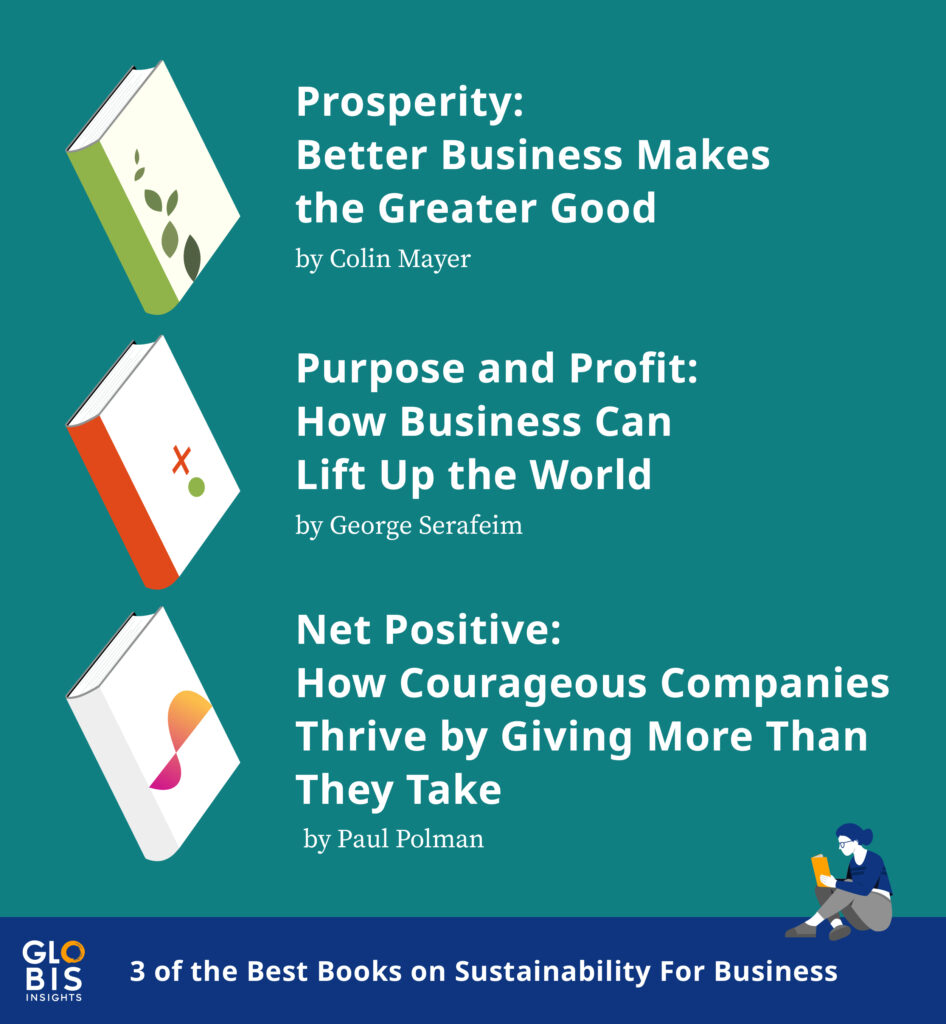Sustainable Innovation in Times of Disruption: Choices for a Better Society
There are opportunities for progress all around us. The key is to innovate on these opportunities sustainably.
To help identify most effective path forward, you'll need to gain a global perspective to these challenges in an open discussion. How can Japan and the world take action to create a more sustainable, innovative world? Where do you fit in?
It's time to find out.
Sustainability is a crucial part of the long-term success of your company as well as the positive impact it makes on society in today’s rapidly evolving business environment.
While many companies now understand the benefit of shifting their focus toward sustainable practices, you may feel like there’s still plenty of work to be done. That’s why we asked GLOBIS staff members to weigh in the books that helped them develop a deeper understanding of sustainable business management.
Sustainable Innovation in Times of Disruption: Choices for a Better Society
There are opportunities for progress all around us. The key is to innovate on these opportunities sustainably.
To help identify most effective path forward, you'll need to gain a global perspective to these challenges in an open discussion. How can Japan and the world take action to create a more sustainable, innovative world? Where do you fit in?
It's time to find out.
Prosperity: Better Business Makes the Greater Good, by Colin Mayer
Immediately after diving in, Mayer hits his readers with an important question: “The law is to justice, as medicine is to health, as business is to… How would you complete this sentence?”
In other words—what is the purpose of business? Why do companies exist in the first place?
Ask any business student this question and they’ll likely tell you that the purpose of any business is to make money for its shareholders.
That’s a reasonable answer. But is this always the truth—or is there more to good business than a bottom line?
In Prosperity, Colin Mayer, a business professor at Oxford University, provides a unique perspective on the history of business, law, and economics, through a philosophical lens. Mayer will make you think about where the business community has gone wrong in the past in the pursuit of profit—and how we can do something about it now.
“It is about creation, development, and innovation—how we as individuals and societies can together build a better world for the benefit of all both today and in the future -the purpose of business as producing profitable solutions to problems of people and planet.”
Prosperity is a thought-provoking read that will encourage you to rethink your perspective on the role that businesses play in society. It’s an essential read for business leaders, policymakers, and academics alike.
Next Article
Corporate Social Responsibility: The 7 Cs of Sustainability
How to Build a Sustainable Business Ecosystem
Disrupt Your Industry With Sustainable Entrepreneurship
Purpose and Profit: How Business Can Lift Up the World, by George Serafeim
Are the concepts of purpose and profit destined to conflict in your life, or can you achieve them both simultaneously?
George Serafeim, a professor at Harvard Business School and author of Purpose and Profit, says that “merging purpose and profit is possible and can be tremendously rewarding, but it is not easy, and there are no guarantees.”
Serafeim helps his readers understand not only that choosing to prioritize purpose over profit is leading some companies to reach new heights—but how they’re managing to do it, and how we can take advantage of a powerful new alignment in society. But make no mistake, Serafeim emphasizes that his book is not about the magic of “doing good.” It’s about the need to understand why some succeed and some ultimately fail in the world of business.
This book is a fantastic resource for entrepreneurs, professionals, investors, or even employees who seek to use their skills to influence society in a positive way.
—Takashi Igarashi, GLOBIS
Net Positive: How Courageous Companies Thrive by Giving More Than They Take, by Paul Polman
This book shows us how management should be (and what management should strive for). Until now, companies have been draining external resources without paying for them with their own social capital. In other words, they have collected profits by “robbing” society. However, today’s society demands management that takes into consideration all stakeholders, it is unacceptable to ignore the negative impact of one’s business on society. This is the worldview that ESG investment seeks to define.
Polman asserts that it is intellectually lazy and outdated to think only in terms of trade-offs, and he recalls that Unilever’s longstanding USLP (Unilever Sustainable Living Plan) was much more ambitious in its efforts to realize Net Positive. In his words, you can sense his determination as a businessman.
What is the significance of your company’s existence in society? I hope that you will read this book with this kind of question.
—Rusuke Honda, GLOBIS







